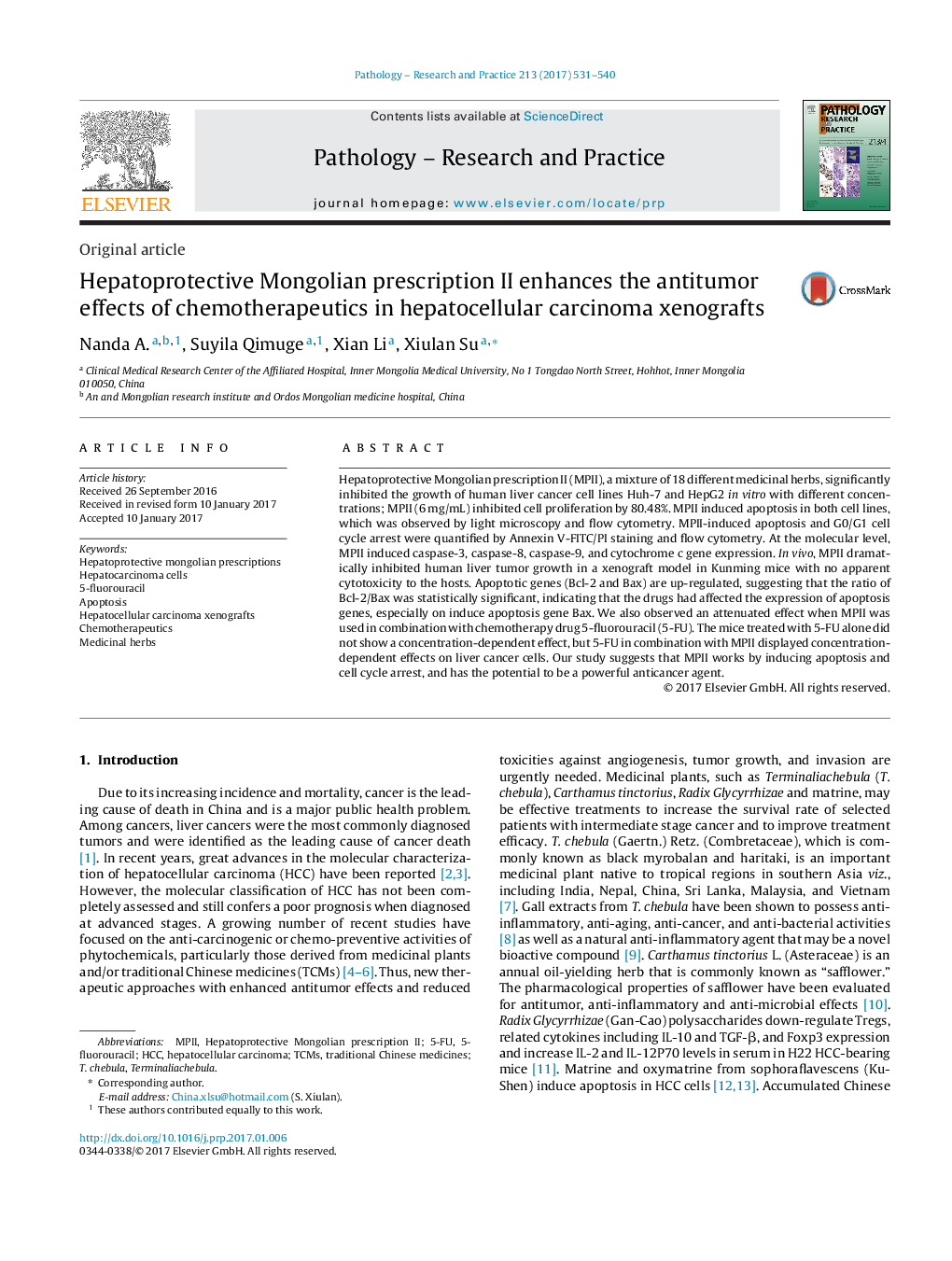| Article ID | Journal | Published Year | Pages | File Type |
|---|---|---|---|---|
| 5529221 | Pathology - Research and Practice | 2017 | 10 Pages |
â¢A potential anticancer agent Hepatoprotective Mongolian prescription II.â¢MPII, a mixture of 18 different medicinal herbs.â¢MPII inducing apoptosis and cell cycle arrest.
Hepatoprotective Mongolian prescription II (MPII), a mixture of 18 different medicinal herbs, significantly inhibited the growth of human liver cancer cell lines Huh-7 and HepG2 in vitro with different concentrations; MPII (6Â mg/mL) inhibited cell proliferation by 80.48%. MPII induced apoptosis in both cell lines, which was observed by light microscopy and flow cytometry. MPII-induced apoptosis and G0/G1 cell cycle arrest were quantified by Annexin V-FITC/PI staining and flow cytometry. At the molecular level, MPII induced caspase-3, caspase-8, caspase-9, and cytochrome c gene expression. In vivo, MPII dramatically inhibited human liver tumor growth in a xenograft model in Kunming mice with no apparent cytotoxicity to the hosts. Apoptotic genes (Bcl-2 and Bax) are up-regulated, suggesting that the ratio of Bcl-2/Bax was statistically significant, indicating that the drugs had affected the expression of apoptosis genes, especially on induce apoptosis gene Bax. We also observed an attenuated effect when MPII was used in combination with chemotherapy drug 5-fluorouracil (5-FU). The mice treated with 5-FU alone did not show a concentration-dependent effect, but 5-FU in combination with MPII displayed concentration-dependent effects on liver cancer cells. Our study suggests that MPII works by inducing apoptosis and cell cycle arrest, and has the potential to be a powerful anticancer agent.
